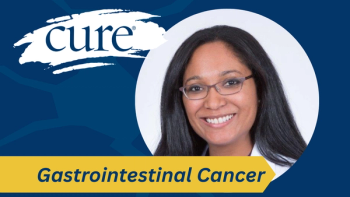
Navigating the Holidays: 7 Tips for Cancer Caregivers
In this most stressful of seasons, these seven specific steps can bring the joy back to the Holidays for those patients going through cancer treatment this time of year.
The holidays are in full swing, and while they can be a time of great joy and deep connection, they can also leave us feeling challenged and overwhelmed.
For oncology patients and their caregivers specifically, the holidays may trigger stress that can cause feelings of frustration or resentment. When patients are actively in treatment or dealing with difficult side effects, these feelings can be compounded with fear or sadness.
According to experts at Cancer Treatment Centers of America, being mindful of just a few key elements may spare you unnecessary stress and keep the holidays enjoyable.
1. Practice Self-Care
According to Corliss Ivy, Guest Chief Experience Officer at CTCA and psychotherapist at Coeur Mental Wellness, LLC, “The more intentional you are about building in self-care, the better you will feel throughout the holiday season. Taking care of yourself is not selfish. You can’t pour into someone else if you have nothing left to give.”
Self-care habits may include:
-Daily quiet time.
-Meeting basic health needs such as proper sleep and nutrition.
-Stressbusters like stretching, laughing or taking a walk.
2. Manage Expectations
As a caregiver, it is a good idea to spend time with your loved one to proactively discuss what is most important to you both this holiday season. What may have been a high priority before may not even be a consideration this year. Being on the same page regarding how you want to experience the holidays will not only alleviate stress but may also prevent hurt feelings.
3. Accept Help
Don’t feel awkward asking for or accepting help. Tammy James, Chaplain at CTCA Chicago and a two-time patient with cancer as well as a cancer caregiver, had this to say: “As the mother of four, I wanted life to be as normal as possible, but after having surgery, I couldn’t walk for months. I had to lean on others. I’m a private person, so accepting help wasn’t easy for me, but I was overwhelmed by the benevolence of my community.”
4. Set Boundaries
According to Ivy, “This is not only fair, but appropriate. Give yourself permission to say no! You can decline offers or invitations that will compromise feelings of peace and calm. Setting time limits for visits is ok. Having boundaries also applies to how you protect your time.”
5. Simple Decorating
For some caregivers, the thought of decorating an entire house or blocking out time for cleaning sounds overwhelming. If your budget allows, hire a cleaning service or accept your friends’ offers for help—most will be happy to lend a hand. Keep decorations simple and easy; James suggests one of her favorites, paper snowflakes. “They are easy, beautiful and even allow the cancer patient to contribute to the decorating.”
6. Gifting
Giving gifts can be fun, or it can feel burdensome. From uncertainty about what’s appropriate to the rising costs of the latest products and gadgets, gift giving is a struggle for many of us. As a caregiver, you have great insight into the needs of your household. Giving feedback and guidance to others who want to gift you and/or the patient, is actually a relief. If you know that gadgets are not useful, be honest. Gift cards can also be extremely helpful. Many caregivers also welcome acts such as grocery pick-up or help with chores in lieu of a bought item.
According to James, “When it comes to gifts, think outside the box. A theme like ‘only homemade gifts’ can be fun and memorable.
7. Meal Planning
Meals are almost always part of any gathering. “This can be incredibly frustrating for patients and caregivers,” shares Ivy. “Foods may not smell or taste the same, possibly provoking nausea. Plan meals around the needs of your family.” Consider options like a “smoothie bar” or “build your own salad,” or only offering dishes that the patient can tolerate, or no food at all.
The biggest take-away is to do what works best for you as a
About Cancer Treatment Centers of America®
Cancer Treatment Centers of America® (CTCA) is a national network of five hospitals in the United States with expertise in treating patients who are fighting cancer. CTCA combines state-of-the-art technologies with an integrative approach to care in order to reduce side effects and maintain quality of life during cancer treatment. You can learn more about Cancer Treatment Centers of America® (CTCA) at
If you would like to start a cancer care ministry in your church to better support cancer patients and those who care for them, visit




